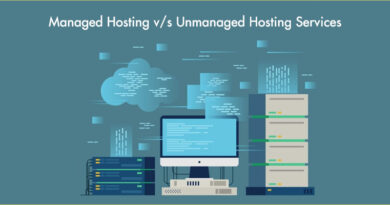Affordable Hosting Plans for Startups
As a startup, one of the crucial decisions you’ll have to make early on is choosing a reliable and affordable hosting plan for your website. The right hosting plan can significantly impact your online presence, user experience, and overall success. With a myriad of hosting options available, it can be overwhelming to navigate through the choices and find the best one for your startup. In this comprehensive guide, we will delve into the world of affordable hosting plans for startups, exploring the key factors to consider, popular options, and tips to make an informed decision. Let’s embark on this journey to find the perfect hosting plan that suits your startup’s needs.
The Importance of Choosing the Right Hosting Plan
Before we delve into the specifics of affordable hosting plans, let’s understand why selecting the right hosting plan is crucial for startups. Your website is the virtual face of your business, serving as a platform to attract customers, showcase your products or services, and drive conversions. A reliable hosting plan ensures that your website is accessible, secure, and fast-loading for visitors. Choosing the wrong hosting plan can lead to downtime, slow loading speeds, security vulnerabilities, and a poor user experience, ultimately impacting your brand reputation and bottom line. By opting for an affordable hosting plan that meets your startup’s requirements, you can lay a strong foundation for online success.
Factors to Consider When Choosing an Affordable Hosting Plan
When evaluating hosting plans for your startup, several factors should influence your decision-making process to ensure you make the right choice. Here are some key factors to consider:
1. Pricing and Budget
It’s essential to determine your budget constraints and assess the pricing of hosting plans available in the market. While affordability is a crucial factor for startups, it’s equally important to strike a balance between cost and quality. Compare the pricing structures of different hosting providers, taking into account any introductory discounts, renewal rates, and additional fees for features like SSL certificates, domain registration, and backups.
2. Performance and Reliability
Performance and reliability are non-negotiable when it comes to hosting your website. Look for hosting providers that offer uptime guarantees, fast loading speeds, and reliable server infrastructure. Conduct research on the provider’s track record, customer reviews, and uptime statistics to gauge their performance levels. A hosting plan that ensures high uptime and minimal downtime is essential for maintaining a seamless online presence.
3. Scalability and Resources
As your startup grows, your website’s traffic and resource requirements will also increase. Choose a hosting plan that offers scalability and resources to accommodate your business expansion. Consider factors like storage space, bandwidth, RAM, and CPU resources to ensure your website can handle spikes in traffic and data volume without experiencing performance issues.
4. Security Features
Security is paramount in today’s digital landscape, especially for startups handling sensitive customer data. Opt for a hosting plan that includes robust security features such as SSL certificates, firewalls, DDoS protection, malware scanning, and regular backups. Verify that the hosting provider follows best security practices and complies with industry standards to safeguard your website from cyber threats.
5. Customer Support
Having reliable customer support can make a significant difference when facing technical issues or seeking assistance with your hosting plan. Look for hosting providers that offer 24/7 customer support through various channels like live chat, phone, email, or ticketing systems. Prioritize providers with a responsive and knowledgeable support team that can address your queries promptly and effectively.
Popular Affordable Hosting Plans for Startups
Now that we’ve covered the key factors to consider when choosing a hosting plan, let’s explore some popular and affordable hosting options that are well-suited for startups:
1. Shared Hosting
Shared hosting is a cost-effective option for startups looking to establish an online presence without breaking the bank. In a shared hosting environment, multiple websites share resources on the same server, making it an affordable choice for small-scale websites with moderate traffic. While shared hosting may have limitations in terms of performance and scalability, it is an excellent starting point for startups with budget constraints.
2. VPS Hosting
Virtual Private Server (VPS) hosting offers a higher level of control, performance, and security compared to shared hosting. In a VPS environment, your website resides on a virtual server with dedicated resources, providing more stability and customization options. VPS hosting is ideal for startups that require more power and flexibility to accommodate growth while still maintaining affordability.
3. Cloud Hosting
Cloud hosting leverages cloud infrastructure to deliver scalable, reliable, and cost-effective hosting solutions for startups. With cloud hosting, your website’s resources are distributed across multiple servers, ensuring high availability and redundancy. Cloud hosting offers pay-as-you-go pricing, allowing startups to scale resources based on traffic demands, making it a flexible and economical choice for growing businesses.
4. Managed WordPress Hosting
For startups running their websites on WordPress, managed WordPress hosting provides a hassle-free solution with optimized performance, security, and maintenance. Managed WordPress hosting providers handle technical aspects like updates, backups, security, and performance optimization, allowing startups to focus on content creation and business growth. While managed WordPress hosting may have a higher price tag, the convenience and peace of mind it offers can be invaluable for startups.
5. E-commerce Hosting
For startups venturing into e-commerce, specialized e-commerce hosting plans cater to the unique requirements of online stores. E-commerce hosting offers features like SSL certificates, payment gateways, shopping cart integration, and scalability to support the demands of selling products online. While e-commerce hosting may be pricier than standard hosting plans, the tailored features and support for online stores make it a worthwhile investment for startups focused on e-commerce.
Comparative Analysis of Affordable Hosting Plans
When comparing different hosting plans for startups, it’s essential to conduct a thorough analysis based on your specific requirements and priorities. Consider factors like pricing, performance, scalability, security, customer support, and additional features to determine the best fit for your startup. Here’s a comparative analysis of the popular affordable hosting plans discussed:
Pricing
Shared hosting typically offers the lowest entry-level pricing, making it an attractive option for startups on a tight budget. VPS hosting and cloud hosting are slightly more expensive but provide better performance and scalability. Managed WordPress hosting and e-commerce hosting are pricier due to their specialized features and services.
Performance
VPS hosting and cloud hosting outperform shared hosting in terms of performance due to dedicated resources and scalability. Managed WordPress hosting is optimized for WordPress websites, offering superior performance for WordPress users. E-commerce hosting is tailored for online stores, providing features to enhance performance and user experience.
Scalability
Cloud hosting excels in scalability, allowing startups to scale resources on-demand based on traffic fluctuations. VPS hosting offers scalability to a certain extent, while shared hosting may have limitations in handling traffic spikes. Managed WordPress hosting and e-commerce hosting provide scalability features to accommodate growth in content and traffic.
Security
All hosting plans prioritize security, but managed WordPress hosting and e-commerce hosting offer additional security features tailored for their respective platforms. Shared hosting may have basic security measures, while VPS hosting and cloud hosting provide more control over security configurations and updates.
Customer Support
Customer support varies across hosting providers and plans. Ensure you choose a hosting provider that offers responsive and knowledgeable customer support through multiple channels. Managed WordPress hosting and e-commerce hosting often provide specialized support for platform-specific queries and technical issues.
Conclusion
Choosing an affordable hosting plan for your startup is a critical decision that can impact your online presence and business success. By considering factors like pricing, performance, scalability, security, and customer support, you can make an informed choice that aligns with your startup’s needs and goals. Whether you opt for shared hosting, VPS hosting, cloud hosting, managed WordPress hosting, or e-commerce hosting, prioritize reliability, affordability, and scalability to lay a strong foundation for your startup’s online journey. Remember, the right hosting plan is not just an investment in your website but a strategic investment in your startup’s future.
To wrap things up, take the time to research and compare hosting plans, seek recommendations from other startups or industry experts, and leverage free trials or money-back guarantees to test the waters before committing. Your website is the gateway to your startup’s success, so choose wisely and embark on your online journey with confidence.




